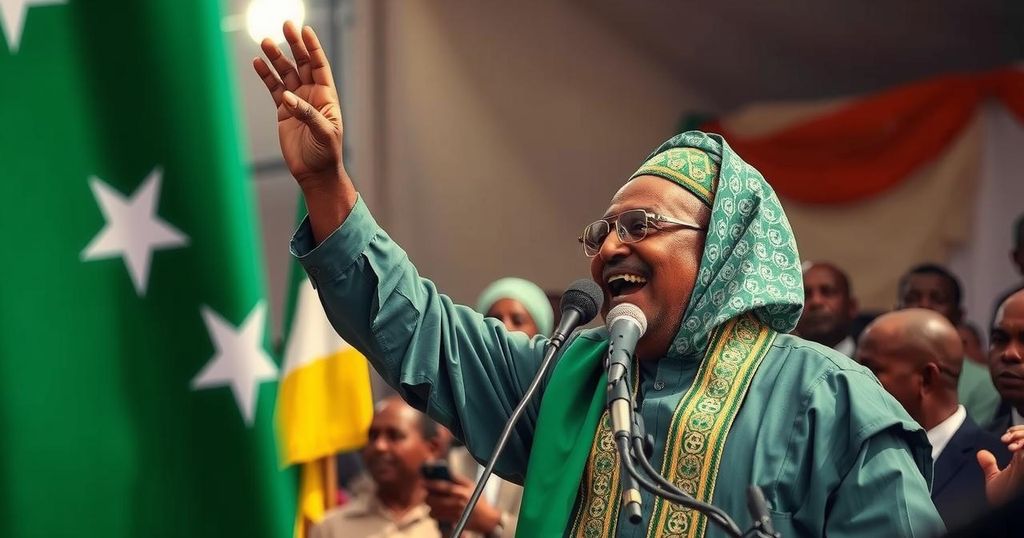Abdirahman Mohamed Abdullahi, known as Irro, has been elected president of Somaliland, winning approximately 64 percent of the vote against incumbent Muse Bihi Abdi. His campaign priorities include economic revitalization and international recognition for Somaliland. The region, self-governing since 1991, remains unrecognized by the global community, complicating its economic situation. Tensions arise with Somalia over a new deal with Ethiopia that could impact recognition efforts.
Abdirahman Mohamed Abdullahi, known as Irro and leader of the Waddani Party, has emerged victorious in the presidential election of Somaliland, securing approximately 64 percent of the vote. His main competitor, the incumbent President Muse Bihi Abdi of the Kulmiye Party, garnered only about 35 percent of the ballots cast. This election was notable for its significant voter turnout, having been postponed for two years due to funding issues and other logistical challenges. Abdullahi’s campaign focused on revitalizing the ailing economy and striving for international recognition for Somaliland, a self-declared independent region that has not been acknowledged by any nation since it declared independence in 1991 amid widespread conflict in Somalia. Under his leadership, the government in Hargeisa aims to address pressing economic issues while concurrently pursuing recognition of its sovereignty from the international community. The political landscape in Somaliland contrasts sharply with that of Somalia, as the former has maintained a stable political environment and operates its own government, currency, and security forces. The ongoing quest for international recognition is compounded by a controversial agreement with neighboring Ethiopia, which could potentially allow access to the sea in exchange for support towards gaining recognition. This deal has raised concerns within Somalia regarding sovereignty and has strained relations within the region. In addition to local dynamics, there are expectations regarding the incoming administration in the United States under President Donald Trump. Some officials from the previous administration have expressed support for formal recognition of Somaliland, a shift that could enhance the region’s international standing and economic prospects significantly.
Somaliland, having declared independence from Somalia in 1991, represents a region that has sought recognition from the international community for over three decades. Despite its stable governance compared to Somalia, it remains unrecognized by any nation globally. The recent election marks a pivotal moment in its political landscape as the new president aims to address economic challenges and seek international acceptance. The political developments are further complicated by regional dynamics involving Ethiopia and Somalia, particularly concerning a controversial sea access deal and its implications for sovereignty and regional stability.
The election of Abdullahi as the president of Somaliland signifies a potential shift in the region’s political direction. His commitment to revitalizing the economy and fighting for international recognition is critical for Somaliland, which remains unrecognized internationally. The forthcoming relations with Ethiopia and potential changes in U.S. foreign policy could impact Somaliland’s pursuit of legitimacy and support its aspirations for sustainable development.
Original Source: www.aljazeera.com






